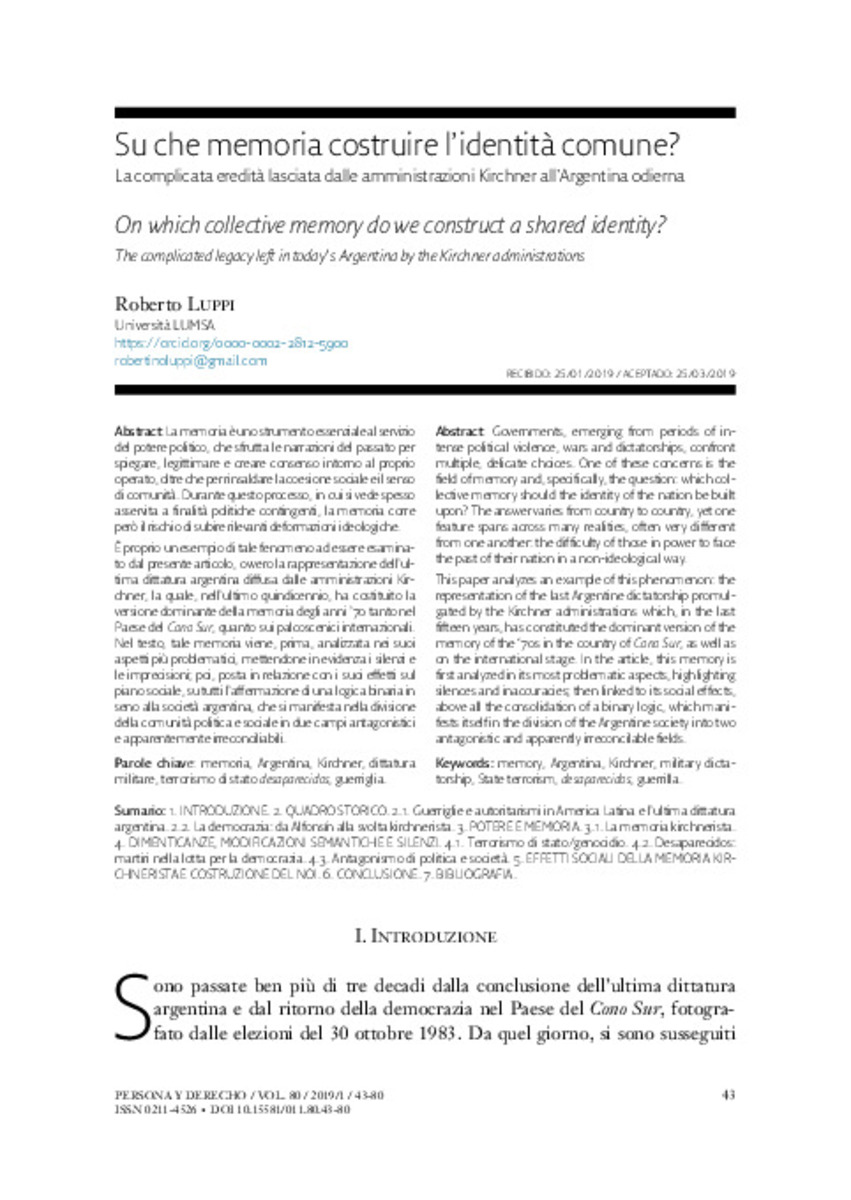Su che memoria costruire l’identità comune? La complicata eredità lasciata dalle amministrazioni Kirchner all’Argentina odierna
Otros títulos :
On which collective memory do we construct a shared identity? The complicated legacy left in today’s Argentina by the Kirchner administrations
Palabras clave :
memoria
Argentina
Kirchner
dittatura militare
terrorismo di stato
desaparecidos
guerriglia
Fecha de publicación :
2019
Editorial :
Servicio de Publicaciones de la Universidad de Navarra
Cita:
Luppi, R. (Roberto). "Su che memoria costruire l’identità comune? La complicata eredità lasciata dalle amministrazioni Kirchner all’Argentina odierna". Revista Persona y Derecho. (80), 2019, 43 - 80
Aparece en las colecciones:
Estadísticas e impacto
0 citas en

0 citas en

Los ítems de Dadun están protegidos por copyright, con todos los derechos reservados, a menos que se indique lo contrario.








